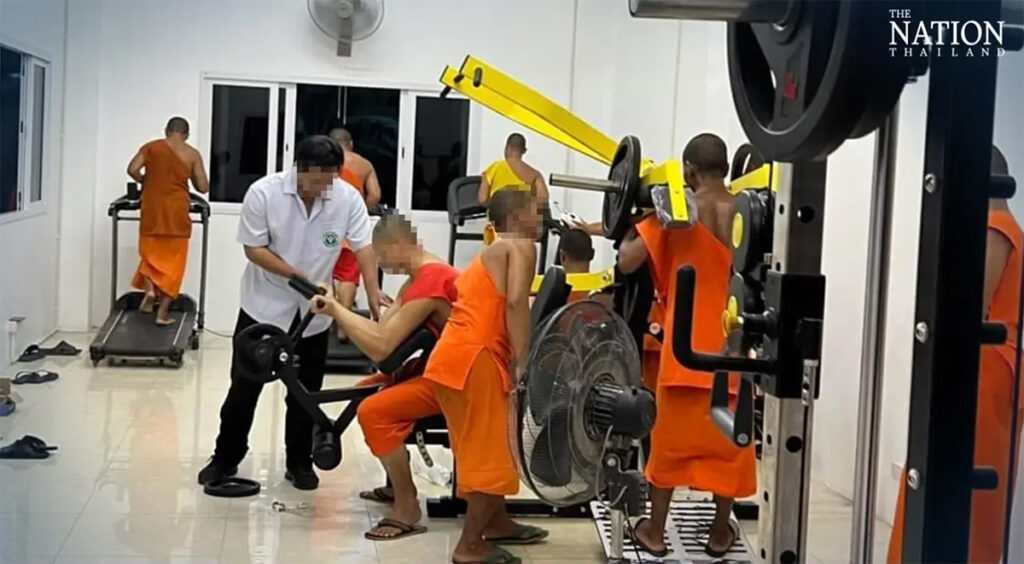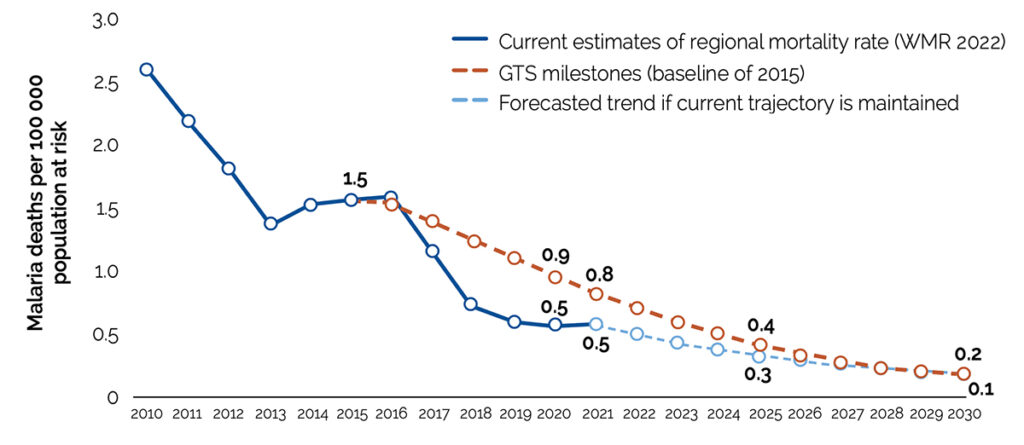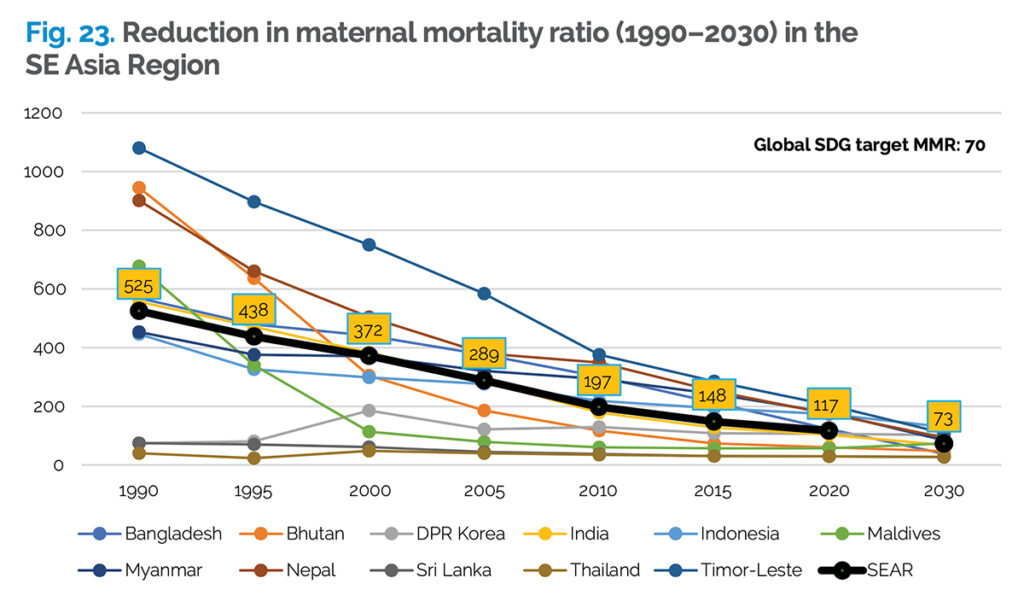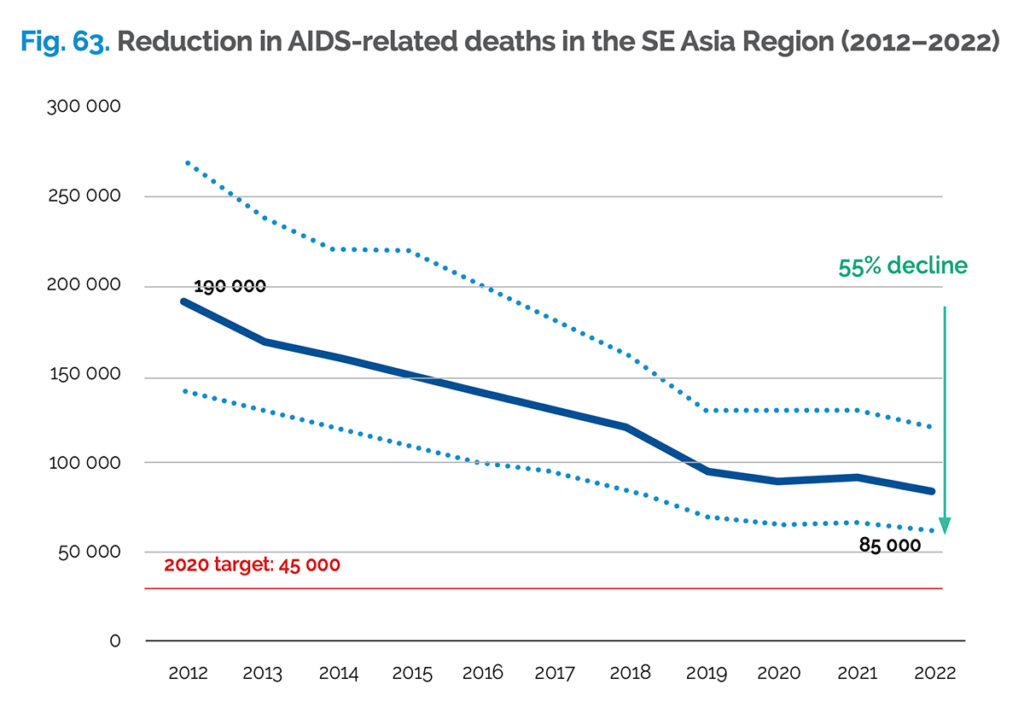Volcanoes are erupting in The Philippines, but on-fire Australia received some welcome rain. The Iran war cries have been called off and The Donald’s military powers are about to be hamstrung by the Senate. Meanwhile, his impeachment trial is starting, and we’re all on Twitter for a front-row seat.
What Could Go Right? The Platinum Decade
Southeast Asia celebrates several public health accomplishments.
This is our weekly newsletter, What Could Go Right? Sign up here to receive it in your inbox every Thursday at 5am ET. You can read past issues here.
The Platinum Decade
I have to wake up at 4am because I’m going on vacation. I can’t hear the TV when I’m eating potato chips. My bed linen doesn’t match. The joke “first world problems” has fallen out of fashion, but it did have a point.
Bit by bit, however, the joke is making less sense as low- and middle-income countries, particularly in Asia, see their quality of life rise and “diseases of poverty” fade into the background.
A new report from The World Health Organization (WHO)—at 400-plus pages, they call it a book—covers the public health status of the Southeast Asia region, which comprises 11 countries, from the last decade.
Looking through, you can see the public health picture slowly coming to resemble that of the United States or the European Union, the concerns moving away from communicable diseases like polio or long-endemic ones like malaria toward cancer, for example, or the health risks associated with poor diet and obesity, and lifestyle choices like drinking and smoking.

I don’t want to overstate the progress; Timor-Leste did not magically turn into Switzerland. The region did well enough for the WHO to title the book The Platinum Decade, though.
In the last decade:
- The entire region (all 11 countries) was certified polio-free.
- The entire region eliminated maternal and neonatal tetanus, which can be transmitted during delivery if instruments or surfaces are contaminated.
- Bhutan, the Maldives, North Korea, Timor-Leste, and Sri Lanka were declared measles-free. The entire region went from contributing 26 percent of global measles deaths in 2013 to 8 percent in 2021.
- Two countries eliminated malaria, and several others eliminated neglected tropical diseases like black fever, a parasitic disease spread by sandflies, and elephantiasis, a parasitic disease that causes disabling swelling.

- Nepal and Myanmar eliminated trachoma, an eye infection that causes blindness. In the region, only India has yet to be certified trachoma-free, although the WHO believes it may have happened by the end of 2023.
- Maternal mortality rates decreased by 41 percent, under-5 by 45 percent, and newborn by 40 percent. (These figures are from a slightly different timeframe, representing a change that occurred between 2010 and 2020.)

- Between 2012 and 2022, there was a 55 percent reduction in AIDS-related deaths and a 42 percent reduction in new HIV infections, although the declines weren’t enough to reach previously set targets. Thailand became the first country in Asia to eliminate mother-to-child transmission of HIV and syphilis—an astounding feat, given that in the 1990s nearly one in five HIV-positive mothers there were transmitting the virus to their newborns.

- And India eliminated yaws, a skin infection caused by the same group of bacteria that causes syphilis. In the region, only Indonesia and Timor-Leste have yet to eliminate it.
The WHO has lofty goals for 2030: to eliminate measles and rubella, tuberculosis, and all neglected tropical diseases like the ones mentioned above, and to make headway in eliminating leprosy. In October 2023, the Maldives was the first in the region to interrupt leprosy transmission, which means that there have been zero native cases of leprosy among children for five years.
The WHO also has challenges ahead, from addressing antimicrobial resistance to bending down the figures on noncommunicable diseases (NCDs) like diabetes, heart disease, and cancer, which now account for two thirds of all deaths in the region.
That is a serious issue, but one that by its nature shows advancement. Unlike treatable childhood diseases, such as malaria and measles, that mainly kill kids under five, NCDs affect people much later in life.
This report is one of those cases where I wish The Progress Network had the resources of mainstream media. There are so many remarkable stories here that deserve deep-dive coverage and, as far as I could find, haven’t received it. For now, we’ll have to settle for data and charts, and imagine for ourselves the waves of people unaffected by diseases that may have killed or disfigured them just a decade prior.
By the Numbers
1,873: The number of global paralytic polio cases in 2020, down from a peak of 460,159 in 1981.
74: The percent of Americans who live in states where marijuana is legal either for recreational or medical use.
Quick Hits
Correction: A poorly worded news item from last week’s edition of the newsletter implied that the RSV vaccine was deadly for newborns and the elderly. RSV can be deadly, not the vaccine.
🌍 EU countries are already hitting some of their sustainable energy targets for 2030. The EU is criminalizing severe cases of environmental damage. And Germany’s government is laying out a strategy to get to net-negative carbon emissions by 2060.
🇮🇹 Italy’s mafias have somewhat given up their lives of crime and have instead invested in . . . real estate (and other economic endeavors). This change is one thing that has helped lead to a murder rate so low it’s matched only by Norway and Switzerland within the EU.
🌾 In many African countries, sorghum is an “essential crop” for food and building material. But a plague of witchweed is attacking 60 percent of the continent’s sorghum fields. Kenyan scientists have developed a witchweed-resistant strain using the gene-editing tool CRISPR and a variant of naturally occurring sorghum. Kenya, Nigeria, and Malawi have approved the new plant, and Uganda and Ethiopia will soon.
⛔ AI does some good: Pornhub users searching for child abuse material are now met with a blocked page and a warning that such content is illegal. In half of the 4.4 million times this has happened in the past two years, a chatbot suggested ways to seek help. (Wired $)
🤹♂️ Israeli scientists have created artificial testicles for the first time, the first step in solving infertility issues that may arise, for example, from chemotherapy.
🐔 One hundred percent of McDonald’s eggs in the US now come from cage-free hens.
🪖 On March 5, all veterans who have served in combat zones or been exposed to hazardous materials since the Vietnam War will be eligible to directly enroll for healthcare from the Department of Veterans Affairs, a speeding up of the PACT Act that President Joe Biden signed into law in 2022.
💵 Rents across the United States—although not everywhere—are cooling, as apartment supply exceeds demand. Wages are rising, inflation is slowing down, and large parts of the country are becoming more economically vibrant.
⚖️ Utah is on the way to becoming a no-kill state, meaning shelters will not put animals down. In Michigan, as of June 2025, felony prisoners completing their sentence will be automatically registered to vote.
🤑 Connecticut says it will become the first state to cancel medical debt for many of its residents—about 250,000 of them. They will be using leftover money from federal Covid-19 relief funds. New Jersey and New York City are also running pilot programs to cancel medical debt.
🦠 An American nonprofit, founded by a man who cured his own rare disease with a drug developed for something else, is building a database for the 10,000 rare diseases that don’t have a drug approved to treat them, so that patients can see if other drugs may do the trick. (WSJ $)
🚀 We missed this last week: the first private spacecraft landed on the Moon. It broke one of its six legs upon landing and has been lying on its side since, but it was still able to gather some scientific data for NASA.
🇫🇷 France has become the first country to enshrine abortion rights in its constitution.
👀 What we’re watching: Legislation has been filed in Kentucky to carve out exceptions in the state’s near-total abortion ban for rape and incest, although it’s unclear if the legislation will be moved forward. House and Senate committees in Alabama have approved identical bills to protect IVF providers after the state’s Supreme Court ruled that frozen embryos are children.
💡 Editor’s pick: We are having fun exploring this new site, Levers for Progress, a collection of which specific levers are needed to hasten science and technology progress. (Think everything from prize competitions to tax credits for research and development.)
TPN Member Originals
(Who are our Members? Get to know them.)
- Israel is losing its greatest asset: acceptance | NYT ($) | Thomas L. Friedman
- The Zionist case for a ceasefire | Tangle | Isaac Saul
- My solutions to the border crisis | Tangle | Isaac Saul
- Two years in, there’s no end in sight for the war in Ukraine | GZERO | Ian Bremmer
- Yes, AIs ‘understand’ things | Nonzero | Robert Wright
- How we got here: Democrats are still suffering from their misinterpretation of the 2016 election | Slow Boring| Matthew Yglesias
- The GOP returns to its bad old self | NYT ($) | David Brooks
 Progress is a policy choice | Infinite Loops | Alec Stapp
Progress is a policy choice | Infinite Loops | Alec Stapp- Black English doesn’t have to be just for black people | NYT ($) | John McWhorter
 A chat with the CEO of microreactor startup NANO Nuclear Energy | Faster, Please! | James Pethokoukis
A chat with the CEO of microreactor startup NANO Nuclear Energy | Faster, Please! | James Pethokoukis - Overwhelmed? Just say ‘no’ | The Atlantic ($) | Arthur C. Brooks
- Moral hazard has no place in addiction treatment | NYT ($) | Maia Szalavitz
 Ralph Nader looks ahead, at age 90. What he sees is not what you’d expect. | Breaking the News | James Fallows
Ralph Nader looks ahead, at age 90. What he sees is not what you’d expect. | Breaking the News | James Fallows


